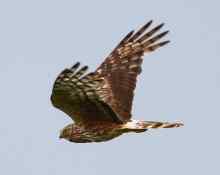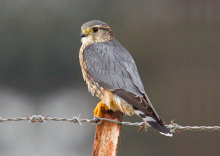Recent announcements to the media regarding Agri-environment schemes for farmers are to be welcomed. A major source of frustration for farming communities in upland areas has been the State's conservation strategies aimed at the conservation of Hen harrier. Whilst there has been a drive to develop the uplands in many areas for wind energy and previously for industrial scale commercial forestry, many upland farmers feel that they have been unfairly treated.
So finally as we are coming to the end of the IRD DuhallowLIFE project and the beginning of a new EU LIFE project; RaptorLIFE. To celebrate these two momentous occasions we recently held a two day project conference in Newmarket. Co Cork.
IRD Duhallow cordially invites you to attend the International EU LIFE conference celebrating hands on community participation in nature conservation, on the 21st and 22nd of May 2015. The conference marks the end of the current LIFE project and the commencement of a new RaptorLIFE project. There will be a wide range of interesting speakers including experts from Ireland, the UK, Belgium and Slovenia. The event is free but prior booking is essential.
New EU LIFE Freshwater Fish Report
The Hen Harrier Circus cyaneus is a bird species of high conservation concern. It is listed on Annex I of the EU Birds Directive. The Hen Harrier population has decreased alarmingly due to habitat loss and persecution. The male Hen Harrier has silver-blue upperparts and is white underneath with broad black tips to the wings. The wingspan of adult males can vary between 97 and 109cm. The female is larger than the male and has a soft brown plumage with contrasting patterns under the wings with a white rump just above the tail.
The Merlin Falco columbarius is another of Ireland’s endangered raptors. It is Ireland’s smallest raptor, which flies low at high speeds with great agility. Its high speed attacks allow it to sometimes catch prey larger than itself. The female is larger than the male and has brownish plumage. The male starts off brown and then his upper body plumage turns grey-blue. They breed in the upland bogs and move down to the lowlands in winter, even along the coast.
Brook Lamprey Lampetra planeri are the smallest of the Lamprey species, measuring only 10 – 15cm. They are an eel shaped fish, with sucker-like mouth instead of jaws. Whilst they are an EU protected annexed species, they are widespread in Duhallow’s rivers and streams. They have a short life cycle of 3 – 5 years, starting with their juvenile phase (ammocoetes) when they eat detritus and other organic matter on the riverbed.







